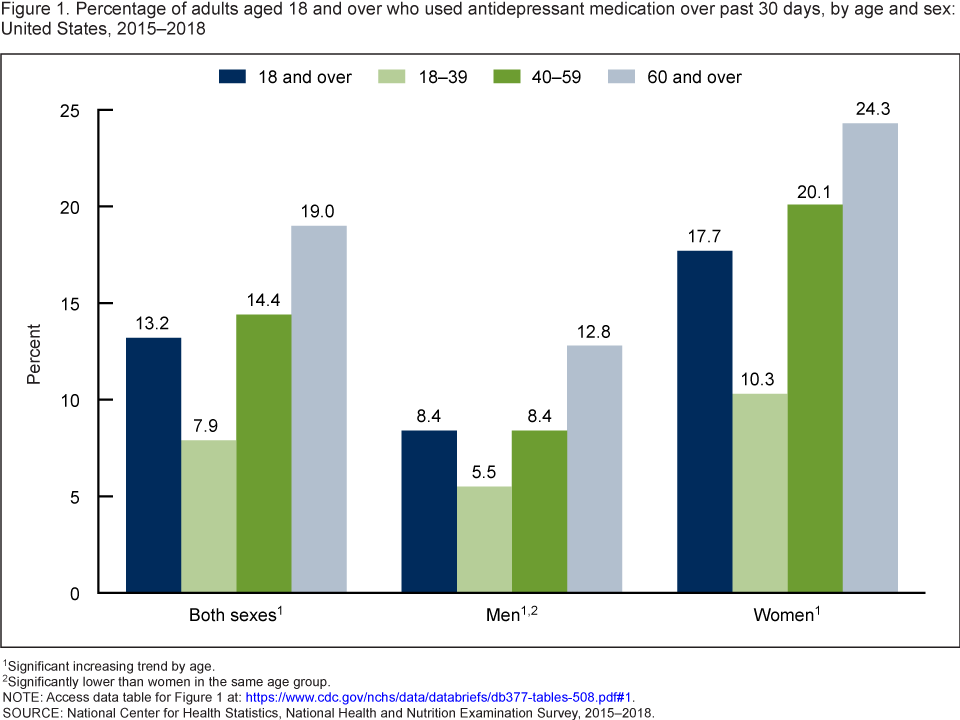"No Convincing Evidence That Depression Is Associated With, Or Caused By, Lower Serotonin Concentrations Or Activity"
That lack of, or low, serotonin drives "depression" is a medial truism, say many. Those who say it most strongly are those companies manufacturing chemicals to boost serotonin levels (or prevent its "reuptake" in the brain).
Yet is it true? A new paper in Molecular Psychiatry says, in effect, no. The paper is "The serotonin theory of depression: a systematic umbrella review of the evidence" by Moncrieff and others.
The paper is, more or less, a meta-meta-analysis, without, thank the Lord, its own p-values. They do it the old-fashioned way: by thinking about the observations. That is, it is primarily a meta-analysis of various other meta-analyses.
Here are the basic findings, from their Abstract, with my paragraphifications:
Two meta-analyses of overlapping studies examining the serotonin metabolite, 5-HIAA, showed no association with depression (largest n = 1002).
One meta-analysis of cohort studies of plasma serotonin showed no relationship with depression, and evidence that lowered serotonin concentration was associated with antidepressant use (n = 1869).
Two meta-analyses of overlapping studies examining the 5-HT1A receptor (largest n = 561), and three meta-analyses of overlapping studies examining SERT binding (largest n = 1845) showed weak and inconsistent evidence of reduced binding in some areas, which would be consistent with increased synaptic availability of serotonin in people with depression, if this was the original, causal abnormaly. However, effects of prior antidepressant use were not reliably excluded.
One meta-analysis of tryptophan depletion studies found no effect in most healthy volunteers (n = 566), but weak evidence of an effect in those with a family history of depression (n = 75).
Another systematic review (n = 342) and a sample of ten subsequent studies (n?=?407) found no effect in volunteers.
No systematic review of tryptophan depletion studies has been performed since 2007.
The two largest and highest quality studies of the SERT gene, one genetic association study (n = 115,257) and one collaborative meta-analysis (n = 43,165), revealed no evidence of an association with depression, or of an interaction between genotype, stress and depression.
The main areas of serotonin research provide no consistent evidence of there being an association between serotonin and depression, and no support for the hypothesis that depression is caused by lowered serotonin activity or concentrations.
Some evidence was consistent with the possibility that long-term antidepressant use reduces serotonin concentration.
You have to laugh at the last line. It's sort of a confirmation of those drug commercials---Ask your doctor is profitol is right for you!---which list the very condition they are supposed to cure as a potential side effect. By the way, if you took profitol, call the law offices of Howard, Fine and Howard. You may be entitled to substantial compensation.
Like I said, the authors don't attempt to quantify things unduly, though authors of the papers they reviewed did. For example, Border et al. 2019, which examined "Association between 5-HTTLPR polymorphism and depression", and which found "No relationship between 5-HTTLPR polymorphism and estimated lifetime MDD diagnosis OR = 1.000, p = 0.994 (N = 115,257)". We don't need the p-value here. The odds ratio is 1 is sufficient.
Also, something went horribly right in this paper. The authors wrote in plain English, larding sentences with medical terms only when needed. This is rare.
Their conclusion is clear:
Our comprehensive review of the major strands of research on serotonin shows there is no convincing evidence that depression is associated with, or caused by, lower serotonin concentrations or activity....
This review suggests that the huge research effort based on the serotonin hypothesis has not produced convincing evidence of a biochemical basis to depression...We suggest it is time to acknowledge that the serotonin theory of depression is not empirically substantiated.
They have also thought through the consequences (my paras.):
The general public widely believes that depression has been convincingly demonstrated to be the result of serotonin or other chemical abnormalities, and this belief shapes how people understand their moods, leading to a pessimistic outlook on the outcome of depression and negative expectancies about the possibility of self-regulation of mood.
The idea that depression is the result of a chemical imbalance also influences decisions about whether to take or continue antidepressant medication and may discourage people from discontinuing treatment, potentially leading to lifelong dependence on these drugs.
Nailed it, I think. By which I mean, it is unlikely the multitude of nervous women (and it's mostly women) who pop these pills will stop.
CDC also says "From 2009–2010 through 2017–2018, the percentage of adults who used antidepressants increased among women, but not men." And it's educated women who pop the most.
There's bound to be a huge fight from Eli Lilly (Prozac), Pfizer (Zoloft), Glaxo Smith Kline (Paxil), Forest Labs (Lexapro, Celexa), and others. This is why: "Fortune Business Insights says that the global market size was USD 11.67 billion in 2019 and is projected to reach USD 18.29 billion by 2027."
That's too much to give up easily. Bound to be a lot of The Science thrown at Moncrieff. And not just by pharmaceuticals. We all know what Mark Twain said about the patients of quacks. We haven't had any time to see how the older educated women will take these results, but we do know their behavior in other medical areas. E.g.:


Honestly, now. Do you believe this kind of woman is going to give up her happy pills based on evidence and argument?
One last thing: the authors did not discuss the side effects of SSRIs, including those deleterious effects from stopping taking them. So it's not only that the pills might not work, they might do more harm than any good. And it certainly seems that way.
Buy my new book and learn to argue against the regime: Everything You Believe Is Wrong.
Visit wmbriggs.com.





Thank you for sharing. This may be one of your most important articles.
What a horrific crime. Depression is your body telling you to take steps to get your life in order. By claiming it's a chemical imbalance, the depressed person is left feeling more helpless when, in fact, there is much she can do to overcome it.
About a decade ago, WSJ ran a story on how difficult it was for those taking SSRIs to wean themselves off this mind-altering drug when their depression abated (time heals all...). Many found the side-effects so terrible that they went back on the drug. Customers for life.